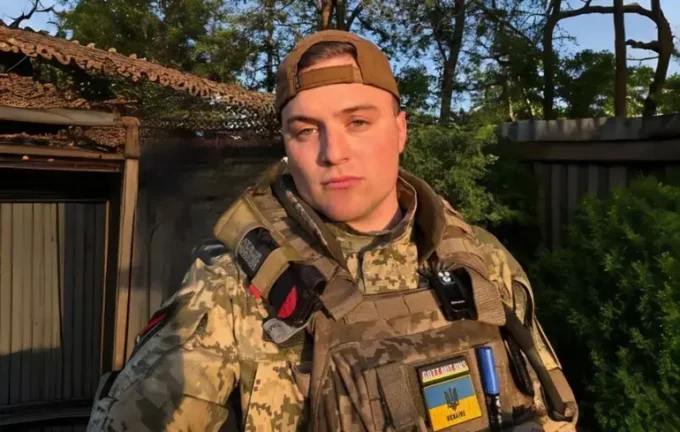German far-right politician who fought in Ukraine faces expulsion over criticism of Russia

Twenty-two-year-old Tim Schramm, a young politician from the Alternative for Germany (AfD), has become the center of controversy both publicly and within his party after revealing his military experience in Ukraine.
According to reports from Nius.de, he served in Ukraine’s territorial defense forces on the eastern front, actively participating in combat against Russian invaders, utilizing military equipment, drones, and facing constant danger during missions.
His participation in the Ukrainian army was made public, sparking debates and disagreements in German political circles.
Meanwhile, AfD leadership has expressed intentions to expel Schramm due to his outspoken anti-Russian stance and support for Ukraine, which conflicts with the party’s pro-Russian rhetoric promoted by regional leaders.
This decision is fueled by his public statements, including social media posts with messages like “Greetings to all pro-Russians!” and “Go away!”.
Schramm refused to sign a commitment offered by regional authorities, which restricted his participation in public statements and military activities concerning the Ukraine conflict until October 2026.
He insists that his actions stem from his convictions and that he fought for what he believed in, despite facing internal opposition.
His participation has been criticized by influential pro-Russian figures within AfD, such as MEP Hans Noygoff, who claims that such conduct damages the party’s reputation.
Schramm emphasizes that his goal is to halt Russian aggression and protect Europe from further territorial expansion.
He states that he is unashamed of his involvement in Ukraine and that he considers it a necessary fight for justice.
This stance has caused friction within the party, which is considering disciplinary measures, including expulsion.
Despite this, Schramm remains committed to his beliefs and plans to continue speaking out.
The unfolding situation raises questions about the internal dynamics of the far-right in Germany, the party’s future direction, and the broader implications for European democracy and extremism.

